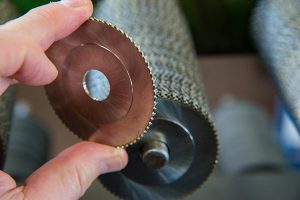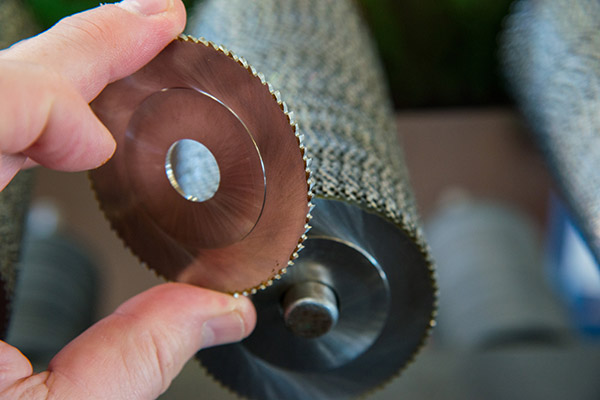Sintered tools have a reputation in metal processing for being particularly hard-wearing and for maintaining their sharpness over a long period. However, processing saw blades, drills and milling tools proves to be time consuming as a result of their particular hardness. This is why the saw blade professionals from Alesa in Switzerland started their own development process to design a grinding machine for circular saw blades. The fully automated Denta Combi 160 is designed for multi-shift operations. Here, precision synchronous servomotors featuring a wash-down coating from Kollmorgen are responsible for positioning the high-frequency grinding heads accurately.

Grinding hard materials involves the major challenge of dissipating the generated heat through water or oil as effectively as possible. The saw blades are so sensitive that temperatures at the edges of more than between 180 and 200°C can result in immediate changes in material performance. The structure deteriorates and hardness reduces considerably.
With this in mind, a high-pressure oil jet is deployed by the Denta Combi so that teeth remain as cool as possible during chamfering. However, as water is more effective than oil in absorbing friction heat during grinding, the machine engineer has to increase the oil supply pressure – and integrate a CO2 extinguisher into the system. In order to prevent the positioning drives inside the processing centre from adverse damage through contact with the cooling liquid, the machine builder uses specially coated synchronous servomotors from Kollmorgen – the AKM Washdown range with a coating made from a two-component epoxy resin. This protects the units securely from the impact of corrosive chemicals. The extremely smooth surface also ensures that liquids are able to run off without residue.
For further information www.kollmorgen.com
















